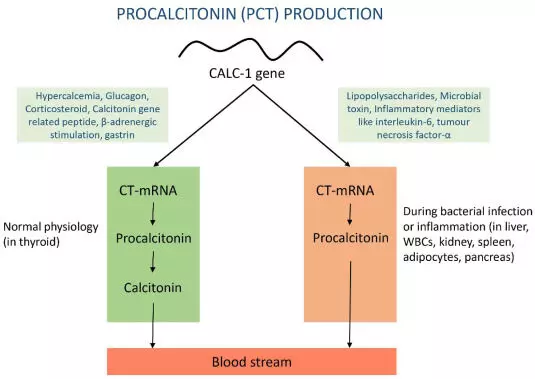- Home
- Medical news & Guidelines
- Anesthesiology
- Cardiology and CTVS
- Critical Care
- Dentistry
- Dermatology
- Diabetes and Endocrinology
- ENT
- Gastroenterology
- Medicine
- Nephrology
- Neurology
- Obstretics-Gynaecology
- Oncology
- Ophthalmology
- Orthopaedics
- Pediatrics-Neonatology
- Psychiatry
- Pulmonology
- Radiology
- Surgery
- Urology
- Laboratory Medicine
- Diet
- Nursing
- Paramedical
- Physiotherapy
- Health news
- Fact Check
- Bone Health Fact Check
- Brain Health Fact Check
- Cancer Related Fact Check
- Child Care Fact Check
- Dental and oral health fact check
- Diabetes and metabolic health fact check
- Diet and Nutrition Fact Check
- Eye and ENT Care Fact Check
- Fitness fact check
- Gut health fact check
- Heart health fact check
- Kidney health fact check
- Medical education fact check
- Men's health fact check
- Respiratory fact check
- Skin and hair care fact check
- Vaccine and Immunization fact check
- Women's health fact check
- AYUSH
- State News
- Andaman and Nicobar Islands
- Andhra Pradesh
- Arunachal Pradesh
- Assam
- Bihar
- Chandigarh
- Chattisgarh
- Dadra and Nagar Haveli
- Daman and Diu
- Delhi
- Goa
- Gujarat
- Haryana
- Himachal Pradesh
- Jammu & Kashmir
- Jharkhand
- Karnataka
- Kerala
- Ladakh
- Lakshadweep
- Madhya Pradesh
- Maharashtra
- Manipur
- Meghalaya
- Mizoram
- Nagaland
- Odisha
- Puducherry
- Punjab
- Rajasthan
- Sikkim
- Tamil Nadu
- Telangana
- Tripura
- Uttar Pradesh
- Uttrakhand
- West Bengal
- Medical Education
- Industry
Procalcitonin Testing flops in reducing Antibiotic Duration for treating Respiratory Infections

In a significant stride towards understanding the practical implications of procalcitonin-guided strategies for lower respiratory tract infections (LRTIs), a recent retrospective cohort study challenges previous assumptions about the efficacy of this approach in real-life clinical settings. The study found that procalcitonin testing did not result in a meaningful reduction in antibiotic duration for LRTIs in real-life practice.
The study results were published in the journal Open Forum Infectious Diseases.
Half of hospitalized patients receive antibiotics, posing challenges in prescribing. Procalcitonin, an FDA-cleared biomarker for bacterial infections, shows promise in guiding antibiotic decisions. While trials indicate reduced antibiotic use, real-world studies yield conflicting results, crucial as procalcitonin testing rises in clinical settings, with a 45% increase in acute care hospitals offering it from 2015 to 2020 in the Veterans Health Administration. This study aims to assess the impact of procalcitonin on antibiotic duration for patients hospitalized with presumed lower respiratory tract infections. The study, spanning the years from January 2018 to December 2021 and involving data from 81 Veterans Affairs facilities, aimed to bridge the gap between controlled trials and the day-to-day reality of patient care. While randomized controlled trials have suggested that procalcitonin-guided algorithms can lead to a reduction in antibiotic duration for LRTIs, this new research dives into the implementation challenges and the true impact of procalcitonin testing on antibiotic treatment.
The comprehensive retrospective cohort study included all acute care hospital admissions for presumed LRTIs during the specified timeframe. Procalcitonin testing, the exposure variable, was compared with non-tested scenarios, with the primary outcome being the duration of antibiotic treatment. Propensity score matching, a statistical method to reduce selection bias, was employed in a 1:1 ratio to ensure a balanced comparison of outcomes between procalcitonin-tested and non-tested patients.
Results:
- Out of the 35,610 patients included in the study, 16.9% underwent procalcitonin testing, and 83.1% did not.
- The median number of procalcitonin levels checked in the tested group was 2, reflecting real-world clinical practices.
- The unadjusted analysis revealed a noteworthy difference in mean antibiotic duration, with the procalcitonin group at 10.0 days compared to 8.3 days in the non-tested group (P < 0.0001).
- Even after rigorous propensity score matching with 3,903 pairs, the antibiotic duration remained longer in the procalcitonin group, underscoring the challenges in replicating controlled trial outcomes in diverse clinical settings.
- A subgroup analysis focused on 2,241 tested patients with procalcitonin values at the standard threshold for antibiotic discontinuation. While there was a marginal reduction of 0.1 days in antibiotic duration compared to non-tested patients (P < 0.01), the overall impact was not as substantial as anticipated.
The study's findings raise questions about the seamless integration of procalcitonin testing into routine clinical care and its real-world effectiveness. Despite promising results in controlled settings, the challenges in translating these benefits to diverse hospital environments suggest that factors beyond the testing itself may influence antibiotic prescribing practices.
This research signals the importance of critically evaluating interventions in real-world contexts, shedding light on the complexities of implementing evidence-based practices in the dynamic landscape of healthcare delivery. As the medical community grapples with optimizing antibiotic use, this study provides valuable insights into the practical challenges and considerations surrounding procalcitonin-guided algorithms for respiratory infections.
Further reading: Jamie E Heren, Brian C Lund, Bruce Alexander, Daniel J Livorsi, Procalcitonin Monitoring and Antibiotic Duration in Presumed Lower Respiratory Tract Infections: A Propensity Score–Matched Cohort Across the Veterans Health Administration, Open Forum Infectious Diseases, https://doi.org/10.1093/ofid/ofad520
BDS, MDS
Dr.Niharika Harsha B (BDS,MDS) completed her BDS from Govt Dental College, Hyderabad and MDS from Dr.NTR University of health sciences(Now Kaloji Rao University). She has 4 years of private dental practice and worked for 2 years as Consultant Oral Radiologist at a Dental Imaging Centre in Hyderabad. She worked as Research Assistant and scientific writer in the development of Oral Anti cancer screening device with her seniors. She has a deep intriguing wish in writing highly engaging, captivating and informative medical content for a wider audience. She can be contacted at editorial@medicaldialogues.in.
Dr Kamal Kant Kohli-MBBS, DTCD- a chest specialist with more than 30 years of practice and a flair for writing clinical articles, Dr Kamal Kant Kohli joined Medical Dialogues as a Chief Editor of Medical News. Besides writing articles, as an editor, he proofreads and verifies all the medical content published on Medical Dialogues including those coming from journals, studies,medical conferences,guidelines etc. Email: drkohli@medicaldialogues.in. Contact no. 011-43720751




